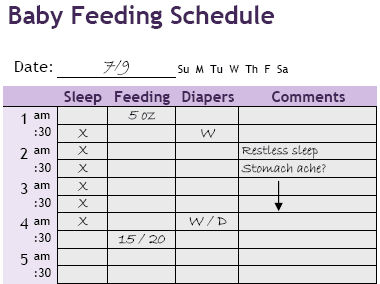Yes.
And I do passionately believe that every baby has the right to be breastfed, that every mother has the right to make an informed decision and that society must make every effort to support her to breastfeed as long as she and her child wish.
It is because of all of the above that I hear quite a lot about those women who cannot breastfeed. And how breastfeeding promotion can distress those women. And this I acknowledge.
So, let's look at the reasons why some women cannot breastfeed (those who won't breastfeed are an entirely different matter):
Physical: There is a figure that has been floating about for as long as I can remember, that only 2% of women physically cannot breastfeed. I suspect it is higher than that - these days in Australia, almost all mothers initiate breastfeeding and that probably includes a lot of women with physical barriers not included previously. But it is still a very small minority of women. You only need one functioning breast to feed a baby (or even two - I have known women to successfully breastfeed twins after a mastectomy!). So if one breast is scarred by fire, accident or surgery, the other can pick up the baton and do the work of two. If both breasts are affected - then sadly there may be no possibility. There are also women whose nipples are just not compatible with a young babies mouth (although it is amazing what babies can grow into!) which may mean only the option of expressed-milk feeding is possible. This can also be the case where the baby's mouth may not be compatible with feeding at the breast. Finally, there are a very small number of women who are advised not to breastfeed because they need medications which are actually not safe for a baby to be exposed to through breastmilk (as opposed to the drugs which actually are safe but are marketed by litigious wary companies and prescribed by health professionals who look only to those companies for information.)
So, I think that sums up the physical barriers to breastfeeding and many might expect this post to end here.
Except I believe there are many other barriers to breastfeeding which render mothers unable to do so. And these tend not to be acknowledged openly, with the cause simply given as "I couldn't breastfeed". Which perpetuates the myth that there is an unquantifiable reason that which gives worry to pregnant and new mothers alike. Lets look at these:
 |
| Big Sister and Grandma don't want to miss out on feeding baby |
 |
| Propping the bottle minimises intimate contact |
 |
| Charts allow you to record input and output - and work best for bottles |
I have not included here the issue of "insurmountable breastfeeding problems", which certainly lead to most premature weaning. What one mother will persevere through and overcome, another - possibly due to one of the issues above OR because of poor access to skilled help at the right time by the right people - will not. They fall outside the intent of this article but are worthy of a future in their own right.
It is to be said this is a simplistic way to look at the issue and for many women, there is so much overlap between multiple issues that no one personal barrier can be identified. However, for women facing social, emotional or intellectual barriers to breastfeed, different models of support are needed - including counselling in many cases, if we are to reduce the impact.

No comments:
Post a Comment